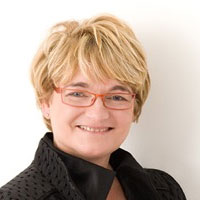If you know what to do, then why are you not doing it?par Irena O'Brien, PhD
Would you say that we know more than we do? For example, how many of us know that to achieve wealth, we have to spend less than we make; that to lose weight, we have to eat fewer calories than we expend, etc.? If we know what to do, then why are we not doing it?
One reason is that we tend to confuse knowledge with action. So we buy another book, attend another seminar, etc. But these things, by themselves, will not change anything. We need to get into action and stop confusing knowing with doing, talking with doing, planning with doing.
Knowing what to do, but failing to do it is what we call The Knowing-Doing Gap. There is nothing wrong with knowing more than we do (in fact, it’s a good thing). But when we fail to act on principles that are important to us, The Knowing-Doing-Gap becomes too large for comfort and sabotages our peace of mind.
So what’s stopping us? A principle, even a great principle, is stated in the abstract. And an abstract statement stays exactly there, in the mind’s abstraction. It is purely intellectual. There, it has little energy to create action. To close The Knowing-Doing Gap, we must increase the energy that creates action by moving the principle down from the level of our mind (knowing) to our muscles (doing).
Mind-to-Muscle
The Mind-to-Muscle pattern is an easy and effective way to close the Knowing-Doing Gap. It works by coaching the body to feel an idea, thereby giving it energy to act on the principle. In Step 1, we translate the principle into a belief. So the principle that wealth is built by spending less than we make could be restated as the following belief: I believe that wealth is built by spending less than I make. Whatever belief statement you choose, it must be personal to you and must be congruent with your values.Repeat this belief statement until you feel energized when saying it.
Once we have a fully-integrated belief statement that makes us feel energized,we then translate the belief into a decision: From this day forward, I will build wealth by saving 10% of every pay check. Again, the decision statement you choose must be personal to you and must make you feel even more energized when repeating it.
Feeling the energy from the belief and decision statements, what one thing could I do today that would make this real? What one more thing could I do? Make sure that it feels compelling to you.
You then repeat this pattern backwards and forwards until you feel that it is installed in your muscle memory.
The example I have given is for creating wealth, but you can use this pattern to install any principle or idea that is important to you. Try this pattern on yourself and then use it on your clients.

